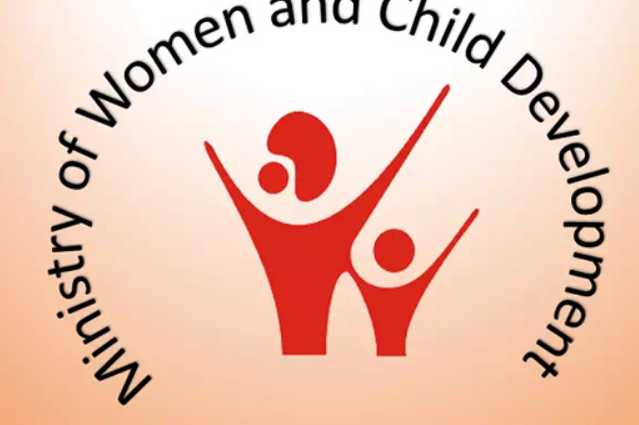Ministry of Women and Child Development
The Ministry of Women and Child Development is a branch of the Government of India that focuses on the development and empowerment of women and children in the country. Established as a separate ministry in 2006, it aims to address various issues related to the welfare, protection, and development of women and children through policies, programmes, and initiatives.
Objectives and Functions
The primary objectives and functions of the Ministry of Women and Child Development include:
- Formulating and implementing policies, plans, and programmes for the holistic development of women and children.
- Promoting social and economic empowerment of women through various schemes and initiatives.
- Ensuring the protection, care, and development of children, particularly those who are vulnerable or in need of special attention.
- Implementing legislations related to women and children, such as the Protection of Women from Domestic Violence Act, the Juvenile Justice (Care and Protection of Children) Act, and the Prevention of Children from Sexual Offences (POCSO) Act.
- Collaborating with other ministries, state governments, non-governmental organizations (NGOs), and international agencies to achieve its objectives.
- Conducting research and collecting data related to women and child development issues to inform policy-making and programme implementation.
Organizational Structure
The Ministry of Women and Child Development is headed by a cabinet-level minister, who is assisted by a minister of state and a team of bureaucrats, including a secretary, additional secretaries, joint secretaries, and other officials. The ministry has several subordinate offices and autonomous bodies, such as:
- National Commission for Women (NCW): A statutory body that addresses complaints and takes suo motu notice of matters related to the deprivation of women’s rights and non-implementation of laws enacted to provide protection to women.
- National Commission for Protection of Child Rights (NCPCR): A statutory body that works to protect, promote, and defend child rights in the country.
- Central Adoption Resource Authority (CARA): A statutory body that regulates and monitors the adoption of Indian children and ensures ethical practices in adoption.
- National Institute of Public Cooperation and Child Development (NIPCCD): An autonomous organization that provides training, research, and documentation in the field of public cooperation and child development.
Key Schemes and Programmes
The Ministry of Women and Child Development has launched several key schemes and programmes to support the development and empowerment of women and children, such as:
- Beti Bachao Beti Padhao (BBBP): A campaign aimed at promoting the survival, protection, and education of the girl child and combating gender-biased sex-selective elimination.
- Pradhan Mantri Matru Vandana Yojana (PMMVY): A maternity benefit programme that provides cash incentives to pregnant and lactating women for their health and nutrition.
- Integrated Child Development Services (ICDS): A programme that provides a package of services, including supplementary nutrition, immunization, health check-ups, and pre-school education, to children below 6 years of age and pregnant and lactating women.
- One Stop Centre (OSC) Scheme: A scheme that provides integrated support and assistance to women affected by violence, both in private and public spaces, under one roof.
- Ujjawala Scheme: A comprehensive scheme for the prevention of trafficking and rescue, rehabilitation, and reintegration of victims of trafficking for commercial sexual exploitation.
Achievements
The Ministry of Women and Child Development has made significant strides in promoting the welfare and development of women and children in India. Some of its notable achievements include:
- Improving the sex ratio at birth through the Beti Bachao Beti Padhao campaign, with 422 districts out of 640 showing improvement in sex ratio at birth.
- Providing maternity benefits to over 1.75 crore beneficiaries under the Pradhan Mantri Matru Vandana Yojana since its inception in 2017.
- Setting up over 700 One Stop Centres across the country to provide integrated support and assistance to women affected by violence.
- Rescuing and rehabilitating over 16,000 victims of human trafficking through the Ujjawala Scheme since its launch in 2007.
- Increasing the enrolment of girls in secondary education through various schemes and initiatives, with the Gender Parity Index (GPI) at the secondary level improving from 0.92 in 2014-15 to 1.04 in 2018-19.
Challenges and Way Forward
Despite the progress made, the Ministry of Women and Child Development faces several challenges in achieving its objectives, such as:
- Persistent gender inequalities and discrimination against women and girls in various spheres of life.
- High rates of child malnutrition, with 35.5% of children under 5 years being stunted and 19.3% being wasted, according to the National Family Health Survey (NFHS-5) 2019-21.
- Rising cases of violence and abuse against women and children, including domestic violence, sexual harassment, and child sexual abuse.
- Inadequate implementation and monitoring of schemes and programmes at the grassroots level.
- Limited resources and budget allocations for women and child development initiatives.


